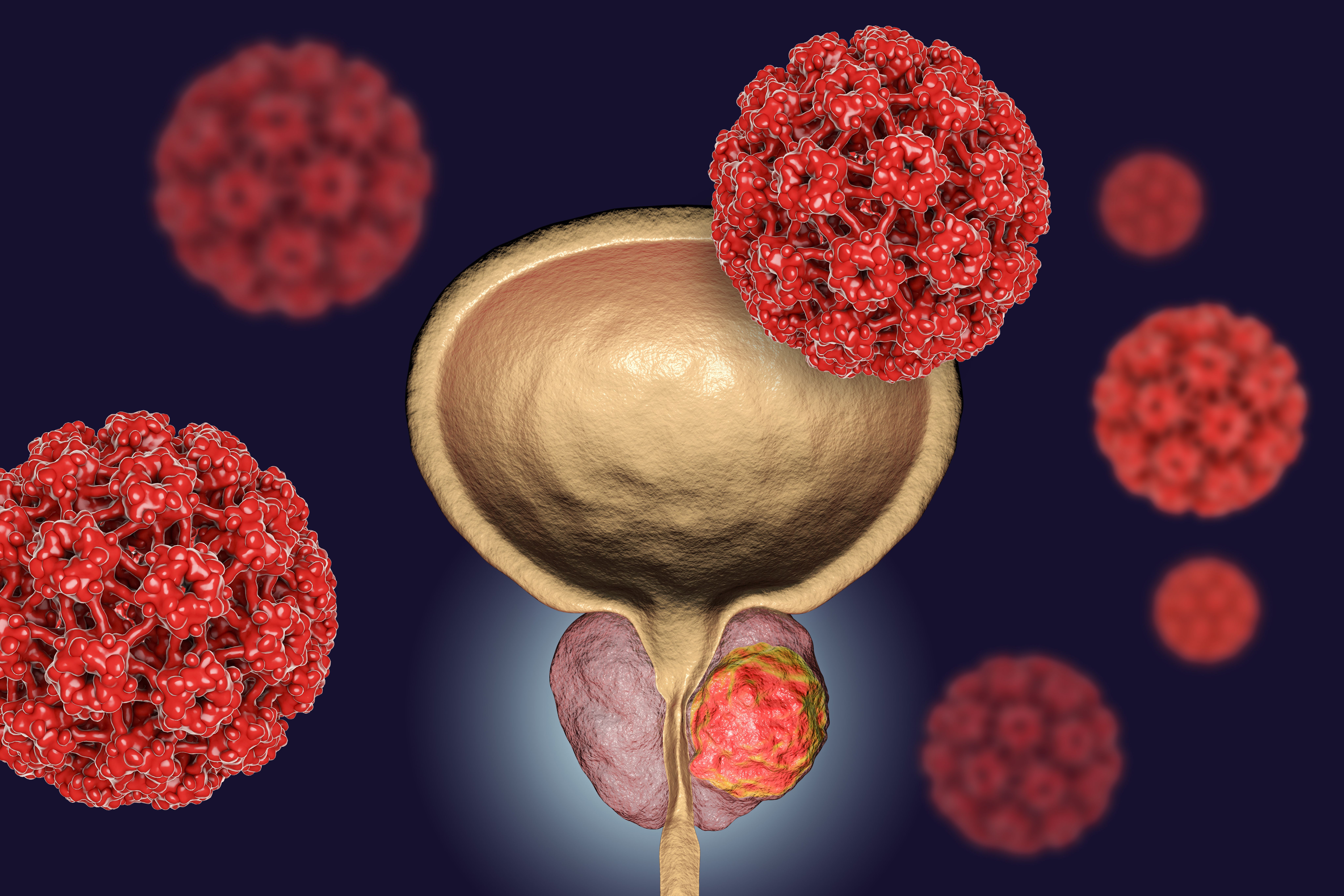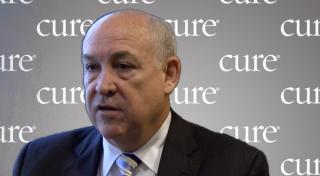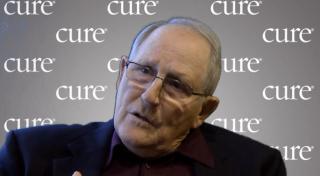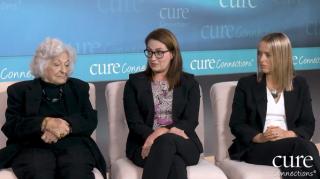
Prostate Cancer
Latest News

Trial Launches to Assess Novel Immunotherapy Approach in Metastatic Prostate Cancer
Latest Videos

More News

Prostate cancer survivors are encouraged to include their partners in interventions to improve sexual function after treatment — and, as study results show, it is better to have these conversations with providers sooner rather than later.

Sexual dysfunction may often happen after prostate cancer treatment, and the results of one study shown that an online program for both the patient and their partner may help in this aspect of recovery.

Additional advancements in how radical prostatectomy is performed are needed to improve other urinary outcomes such as good urinary function and social incontinence.

The pharmaceutical company announced preliminary results on a phase 3 trial, which demonstrated that Nubeqa with docetaxel and androgen deprivation therapy may improve overall survival in men with metastatic hormone-sensitive prostate cancer.

With recently revised treatment guidelines, doctors may be more likely to recommend active surveillance to men with low-risk prostate cancer.

Hypofractionated radiation for nearly five weeks in men with prostate cancer after surgery may have similar results without added side effects compared with radiation therapy for a standard duration of seven weeks.

A man reflects on slight symptoms he was not concerned about leading up to his prostate cancer diagnosis.

The first patient was enrolled in a phase 2 clinical trial for the treatment of hormone-sensitive advanced prostate cancer.

Treatments for bladder, colorectal and prostate cancer may cause sexual dysfunction in men. Here, an expert provides insight into how patients and survivors may improve their sexual health.

It is important that the whole community understand that basic research and clinical trials can continue to improve outcomes for patients with genitourinary cancer.

In this special issue of CURE®, we spoke with patients and health care providers about fertility issues, treatment advancements and other topics related to kidney, prostate, testicular and bladder cancers.

The prescription of systemic cancer therapies varies based on a patient’s age, comorbidities, cancer stage and other variables, according to recent research.

Clinical trials that are designed to ask patients with bladder, kidney and prostate cancer about their smoking status may help patients better understand what to expect from their treatment based on their smoking habits.

The eligible age of 65 years for Medicare may be discouraging patients from getting screenings and tests as they wait for more health coverage.

Monitoring, rather than immediately treating, patients with low-risk prostate cancer may be a better approach, says an expert from UCSF Helen Diller Family Comprehensive Cancer Center.

After decades of research, scientists inch closer to FDA approval for PSMA-targeted treatments that show promise for patients with an advanced form of prostate cancer.

An ovarian cancer survivor shares what it was like to be her late husband’s caregiver when he had prostate cancer, years before her own diagnosis.

Widowers were more likely to be diagnosed with prostate cancer that had distant metastases, according to recent research.

From the state of the “Tiger King’s” Joe Exotic’s prostate cancer to the emotional reunion of two 3-year-old cancer survivors, here’s what’s happening in the cancer landscape this week.

Our first imperative as cancer survivors is to travel on a journey of wellness and peace of mind, not fear and stress.

Articles containing misinformation on social media sites like Facebook and Twitter were more likely to be shared and liked than those with accurate information.

A survivor of prostate cancer celebrates the news that his cancer has not spread and describes how remission has made him feel.

Despite this “obesity paradox,” doctors do not recommend gaining weight with hopes of improving cancer outcomes.

The disease, which advanced to his spine and bones, prevented him from appearing onstage for the “Friends” reunion.

Reaching a younger age group of African American men for prostate cancer detection may improve their survival outcomes, says an expert from the University of California San Diego.














